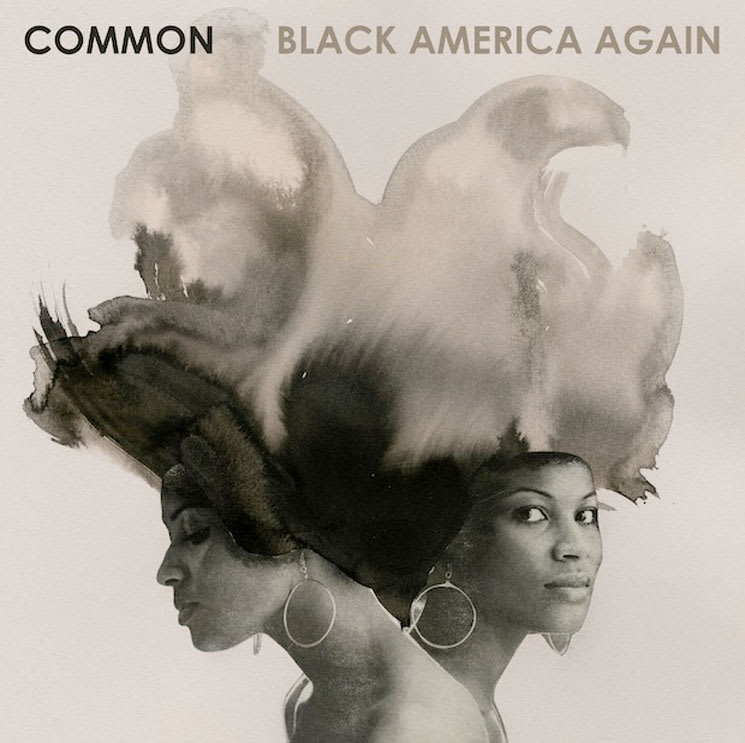Since its inception, hip-hop culture has expressed the struggles, thoughts, fears and celebrations of Black and Latino communities, achieving a sense of unity amongst different corners of society. As his 11th studio album — a number largely associated with balance and unity — Common's Black America Again will please listeners new and old as it bounces back and force between the shining soul of albums like Resurrection while tapping into to themes threaded throughout Like Water For Chocolate and Be.
Although the sombre elements of Common's 2014 Nobody's Smiling resonate throughout the album, Black America Again presents the veteran Chicago rapper as a soldier fighting for freedom in a present-day socio-political war. Vintage record scratches, electric jazz chords, bellowing horns and gospel soul characterize this journey to freedom, while Common's intricate rhyme schemes tell stories of emotional missions and empathetic struggles.
The silky vocals of Bilal on "Joy and Peace" and "Home" open the album in familiar territory, but it quickly dives into the harsh realties of being Black in America. As John Legend adds spiritual harmonies to "Rain," Stevie Wonder's vocals add a clear-eyed confidence to title track "Black America Again," rooting both singles with a sense of unwavering resilience — Black resilience. Common rhymes with conviction on the Ol' Dirty Bastard-featuring "Pyramids," while also paying homage to the Black nationalism of groups like Public Enemy and A Tribe Called Quest.
Common also pays tribute to the strong women on the lines, imagining a world where women are in complete power ("The Day Women Took Over"), the importance of love ("Love Star") and even the city that raised him ("Little Chicago Boy"), but it's the reference to Billie Holiday's "Strange Fruit" on album closer and freedom march anthem "Letter to the Free" that truly demonstrate the Chicago MC's strength.
Black America Again isn't an album meant for casual listening, but rather a socio-politically charged album meant to be absorbed so that everyone can truly recognize the "Bigger Picture Called Freedom."
(ARTrium Recordings / Def Jam Recordings)Although the sombre elements of Common's 2014 Nobody's Smiling resonate throughout the album, Black America Again presents the veteran Chicago rapper as a soldier fighting for freedom in a present-day socio-political war. Vintage record scratches, electric jazz chords, bellowing horns and gospel soul characterize this journey to freedom, while Common's intricate rhyme schemes tell stories of emotional missions and empathetic struggles.
The silky vocals of Bilal on "Joy and Peace" and "Home" open the album in familiar territory, but it quickly dives into the harsh realties of being Black in America. As John Legend adds spiritual harmonies to "Rain," Stevie Wonder's vocals add a clear-eyed confidence to title track "Black America Again," rooting both singles with a sense of unwavering resilience — Black resilience. Common rhymes with conviction on the Ol' Dirty Bastard-featuring "Pyramids," while also paying homage to the Black nationalism of groups like Public Enemy and A Tribe Called Quest.
Common also pays tribute to the strong women on the lines, imagining a world where women are in complete power ("The Day Women Took Over"), the importance of love ("Love Star") and even the city that raised him ("Little Chicago Boy"), but it's the reference to Billie Holiday's "Strange Fruit" on album closer and freedom march anthem "Letter to the Free" that truly demonstrate the Chicago MC's strength.
Black America Again isn't an album meant for casual listening, but rather a socio-politically charged album meant to be absorbed so that everyone can truly recognize the "Bigger Picture Called Freedom."
